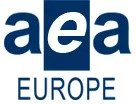There is no doubt that Covid-19 has had a significant impact on educational assessment this year. For many, the silver lining was that the pandemic acted as a catalyst for greater interest in the use of e-learning and e-assessment technologies to either replace or complement face to face delivery.
Looking specifically at assessment, the pandemic highlighted the fact that many of our existing approaches to evaluating learning are built around principles that have remained unchanged for many decades, with rigid forms of delivery that make assessments difficult to pivot quickly. Furthermore, perhaps, highlighting that some existing assessment delivery practices are also no longer fit for purpose within the context of evolving employment requirements.
Faced with the restrictions imposed by the pandemic, NEBOSH, a globally recognised awarding organisation for health, safety & environmental qualifications, who have already made great strides towards the wider use of digital assessment, found themselves needing to pivot away from being reliant on physical test centre invigilated exams. Moreover, NEBOSH saw the opportunity to evolve the assessment approach to further enhance their alignment with the e-learning delivery practices adopted by many of NEBOSH’s learning provider partners.
Working closely with the regulatory arm of the SQA, NEBOSH set about redesigning the end-point assessments for their National General Certificate and International General Certificate qualifications.
They chose to redesign the assessment model from the ground up, moving from a more traditional ‘closed-book’ exam, to an open book examination that focuses on the candidates’ ability to apply the knowledge that they have gained by responding to a real-world, case-study scenario.
NEBOSH chose to deliver this new open-book exam through a bespoke, commercially supported version of the open-source Moodle e-learning environment. This digital platform enabled them not only to manage assessment delivery and session timings, but also to facilitate the on-screen marking of the candidate responses by examiners using Moodle’s Gradebook feature. Learning providers also captured one-to-one candidate interviews, which were available to NEBOSH in order to validate the authenticity of candidate work.
The new approach was up and running within just six weeks, with the first assessment session in August seeing nearly 9,000 candidates submissions from learning providers in 94 countries. The solution proved popular with candidates and examiners alike, and has also facilitated an even closer and more transparent working relationship between NEBOSH and its Learning Partners.
However, for me, the best aspect of this project, and arguably the key to its success, was not the specific choice of the delivery technology, but the close working relationship between NEBOSH and the SQA in designing a new, digitally enabled approach to the assessment. So often, regulators are perceived as not being supportive of innovation, whereas often the opposite is the case, as this fantastic example illustrates so well.

0 Comments